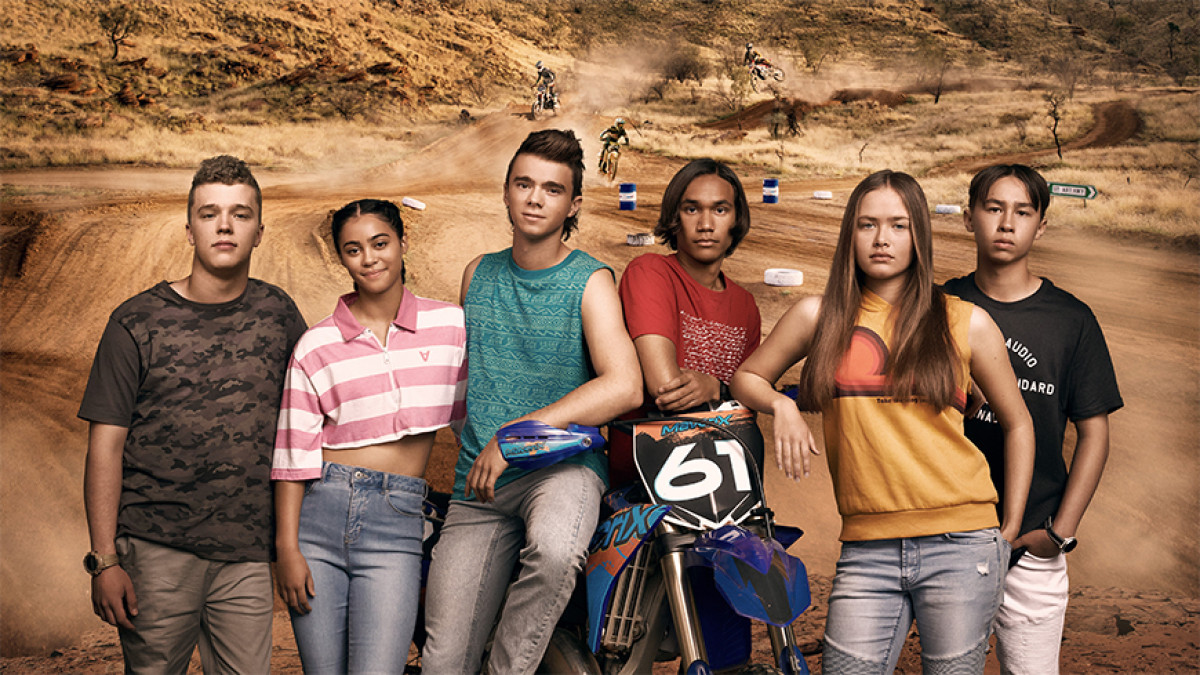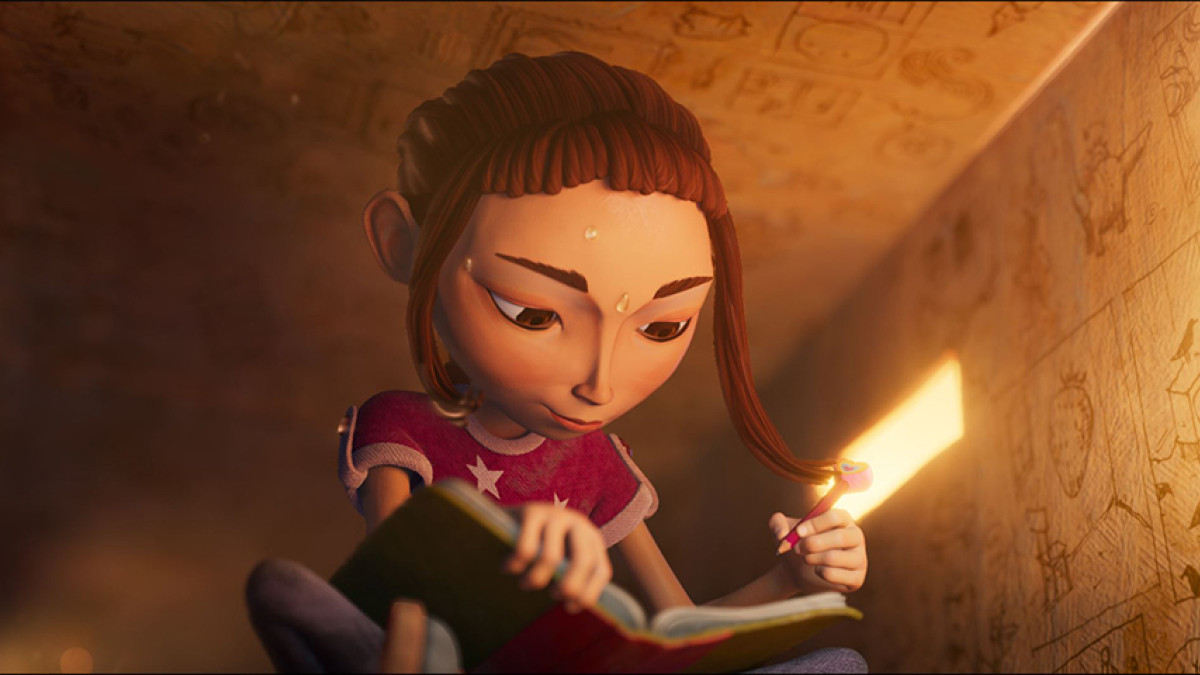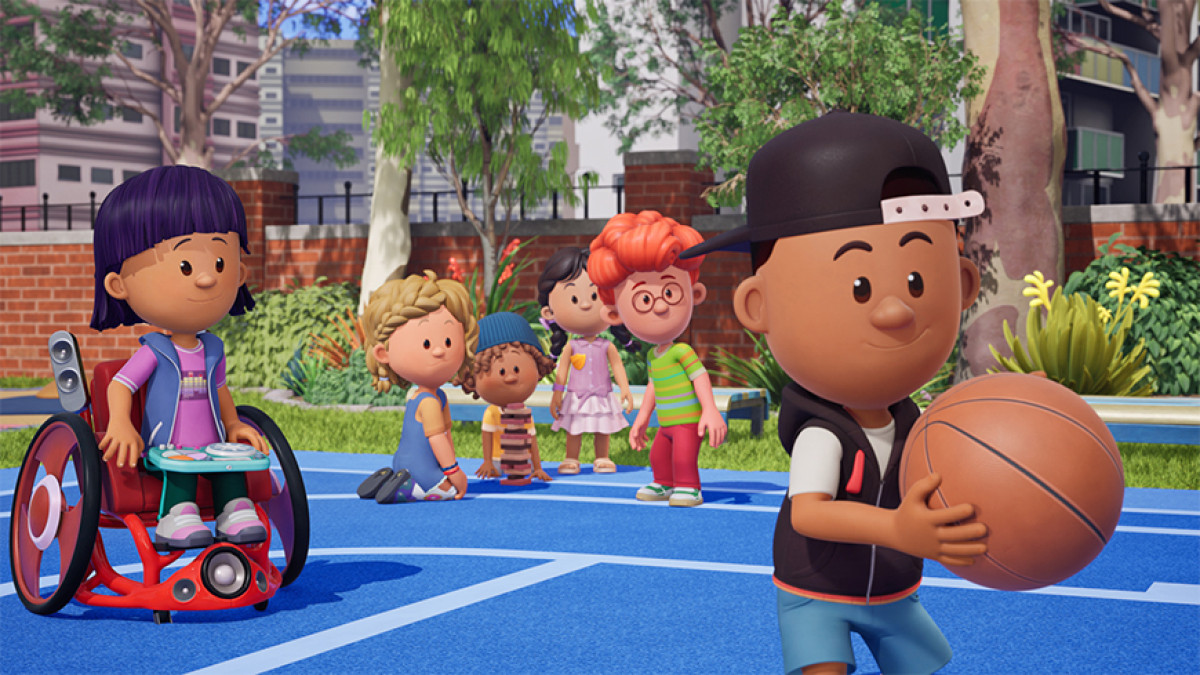ACTF News
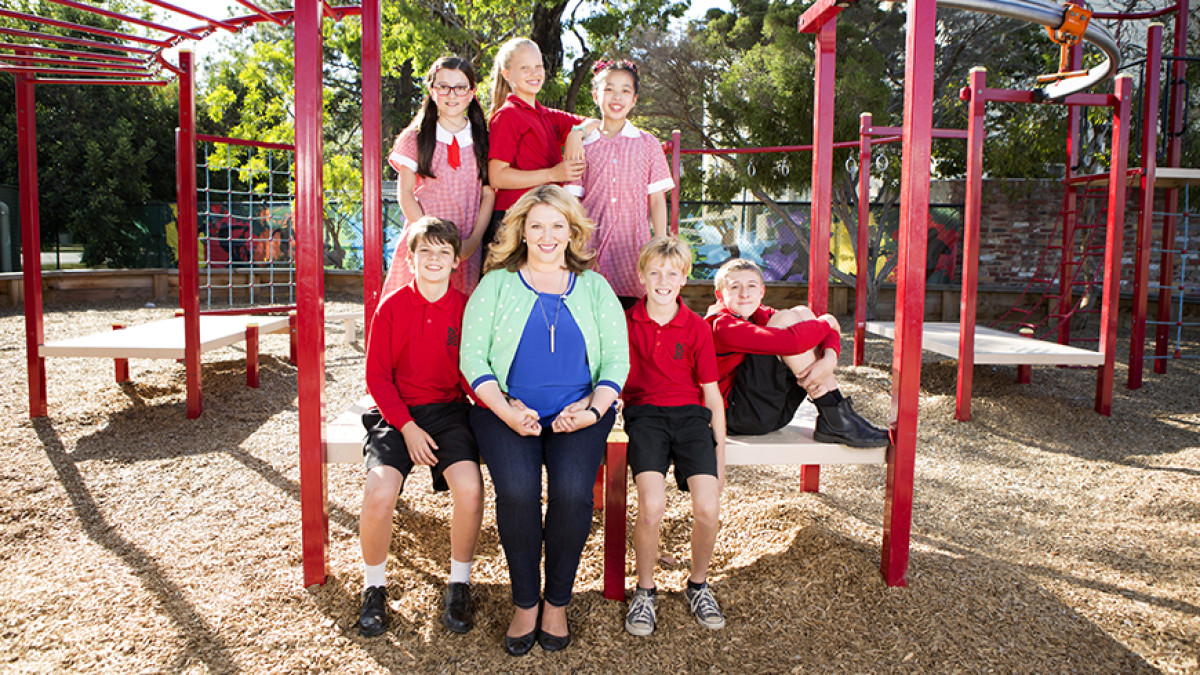
When Australian TV comedy veterans Wayne Hope and Robyn Butler (Gristmill) pitched an idea for their first ever children’s series, the ACTF and ABC were quick to jump on board. The creators of The Librarians and Upper Middle Bogan had decided that their first foray into kids’ TV would be an adaptation of the book series Little Lunch, written by Danny Katz and illustrated by Mitch Vane, both friends of the couple.
“They tried to develop it as an animation and it hadn’t really gone anywhere, because animation is incredibly difficult,” said Robyn. “We really loved the books – we used to read them to our kids... We really loved the sense of humour and the spirit of the books, and so we said, ‘maybe we can have a shot’.”
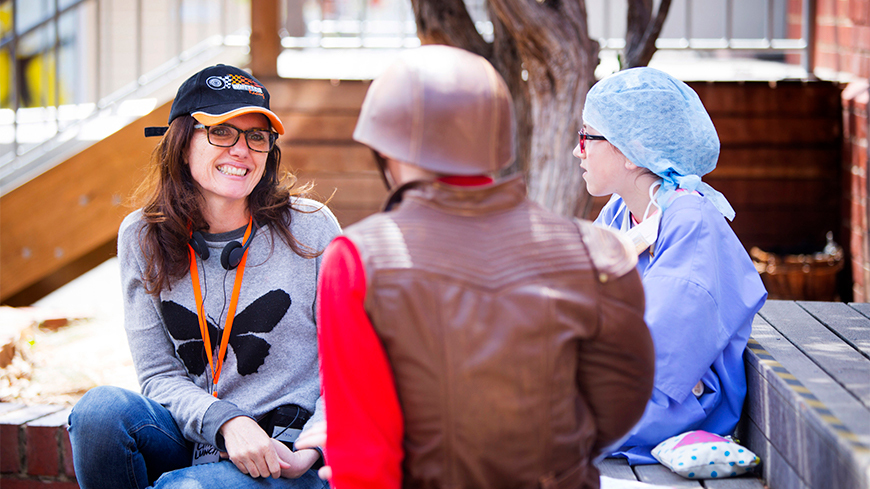
Robyn Butler on set with Oisin O'Leary and Faith Seci
With funding from the ACTF and ABC, the pair then began reimagining the books to develop them for the screen, moving from animation to live action. Little Lunch would be a series of self-contained episodes dealing with the big issues facing small people – like what’s in your lunchbox or whose turn it is on the monkey bars – each told from the point of view of one of six diverse children. Each episode would be around 15 minutes long, just like recess itself. And, for the first time in Australian children’s television, the format would be mockumentary.
“We thought the idea of kids speaking direct to camera and looking down the barrel and saying, ‘at Little Lunch I lost my glasses, and it was terrible’ with all the intensity of the playground would work very well,” said Wayne. “Kids were watching Modern Family at the time, which was a mockumentary… we really felt like kids would get it,” said Robyn.
But the first scripts were met with hesitation. “Everyone’s response was, ‘we love this, we love mockumentary, but that might be just because we’re adults. We’re not sure that children will connect with this’,” said Wayne.
“So, we got together some money for a pilot via the ACTF, Film Victoria and the ABC and we made this pilot and it was terrific,” said Robyn. “It was really great and it really worked.” But there were still doubts as to whether the format would resonate with the child audience. “The ABC had some genuine and valid reasons to doubt why this project would work,” said Robyn. But the ACTF was convinced it would be a hit, so they tested the pilot at a Melbourne primary school.
ACTF Executive Producer Bernadette O’Mahony said everyone loved it. “We screened the pilot to hundreds of kids, year level by year level,” she said. “Each grade loved the pilot and different groups laughed at different moments or different characters, and the teachers – many of whom were parents as well – also loved it and commented on how real and relatable it was. The ABC then commissioned the series, and the rest is history.”
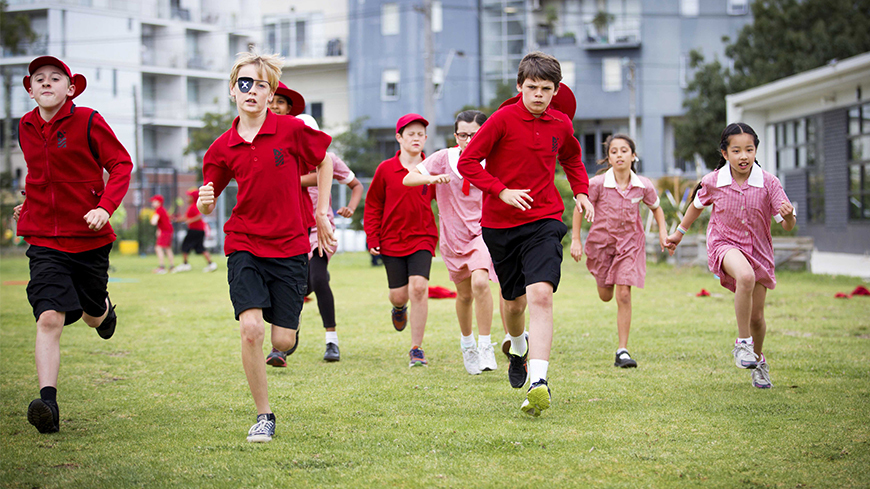
In adapting the book series for the screen, the Gristmill team made some significant changes – notably, raising the age of the children.
“When we first went and saw Bernadette O’Mahony about it at the ACTF… the books by Danny and Mitch were for prep to grade two and they had nine characters in it, and she said, ‘That’s not going to work’,” said Robyn. “She said, ‘They need to be older, and you need to have fewer characters.’
“What Bernadette made us do by doing that was to actually make the kids in this really beautiful, sweet spot – not just for the audience, but a 10-year-old is in our mind a really great age to get a kid to act because they’re just old enough to understand the material and to get the tone, and just young enough not to be self-conscious about it… Grade five was the sweet spot.”
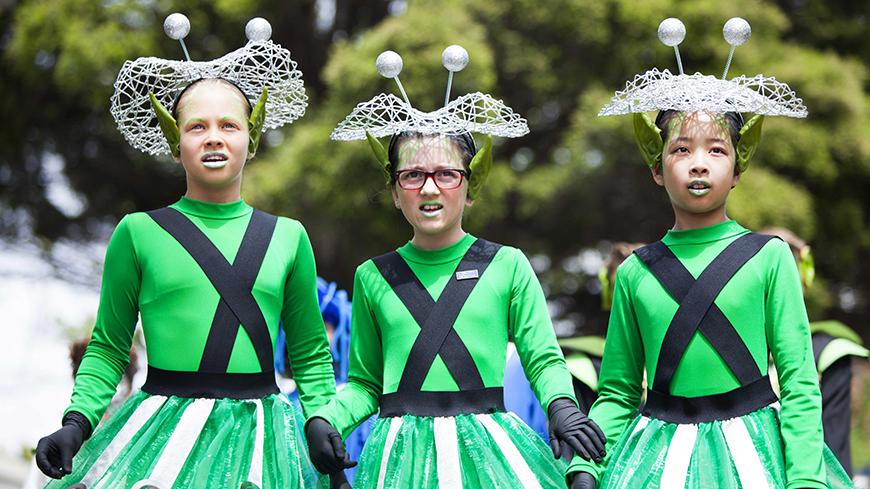
Olivia Deeble, Faith Seci and Madison Lu
Importantly, having 10-year-olds on screen also filled a niche in the market: at that time, children in that age group were not represented on screen.
“Kids who [were] 10 watched iCarly, who was 15, or they watched Hannah Montana who was 15, and they didn’t watch themselves,” said Robyn. “We had 10-year-olds on screen and 10-year-olds were the ones going, ‘bang’.”
But the appeal of Little Lunch was far broader than 10-year-olds, and much broader than even the creators anticipated. Children of all ages as well as parents and teachers embraced the series.
“Once it went to air, the lovely feedback was that it became a family viewing show,” said Wayne. “We would start getting correspondence from parents that said, ‘I’m watching this and it’s really funny’.” In a July 2015 issue of the Green Guide, Kylie Northover wrote: “The after-school timeslot should not be a deterrent for adults. The overarching themes of friendship, tussling with authority and anxiety are relatable for all of us.” A review in the Sunday Age published in the same week labelled Little Lunch “an absolute joy”: “It’s quite possible that the best of Australian children’s television is actually better than the best of our grown-up television. Lockie Leonard, Dance Academy, Nowhere Boys: they’ve all been absolutely world class, and now this completely delightful series for sub-tweens joins the ranks.”
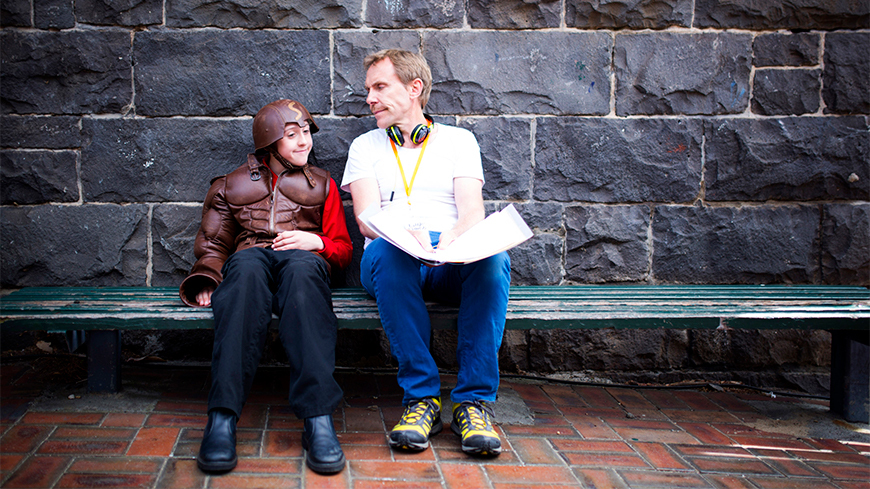
Wayne Hope (right) on set with Oisin O'Leary
The success of the series also translated internationally. Little Lunch has been licenced in around 140 territories and translated into around 21 languages. And nine years since it first aired, the series continues to delight audiences of all ages worldwide. “We get fan mail and emails and things from everywhere,” said Robyn. “Fan art sent in, and it’s the cutest,” said Wayne. “The kids write to the characters and send that in.”
“The books that people write, the episodes that people write, the drawings that they do from Poland, Mexico, Chile, Ireland, just everywhere,” said Robyn. “Kids see themselves in all those characters.”
The series has also won multiple awards, both overseas and back home, including AACTA and TV Week Logie Awards, a Chicago International Children’s Film Festival prize, the Japan Prize for Best Primary Series and Best Fiction Program for 7-10 at the prestigious Prix Jeunesse International Festival.
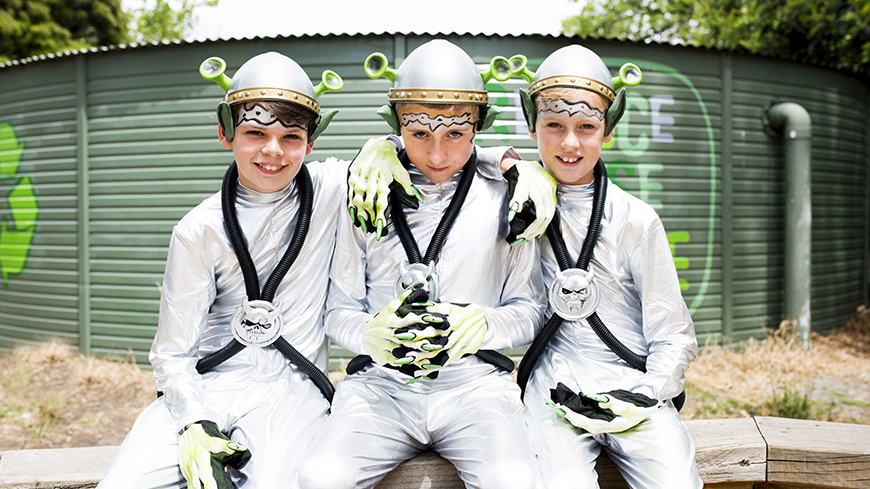
Joshua Sitch, Oisin O'Leary and Flynn Curry
“One of the reasons I think we’ve found some success in the children’s space is because we think about comedy the same, whether it’s for children or grown-ups… it’s the same,” said Robyn.
“We were just making our show, concentrating on making the best show that we could make, and then we were getting this very, very big response. But I think it just straight to our core belief: we’re just making the best show that we can make and it’s a comedy for anyone who gets it.”
You can stream Little Lunch on ABC iview, or download it to own from the ACTF shop.
